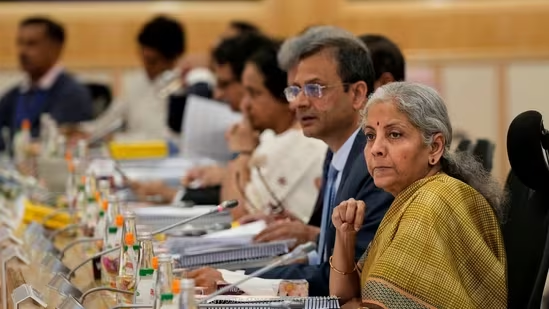Scope for streamlining

The 54th GST Council meeting is set to take place on September 9, 2024. The indirect tax regime has undergone crucial shifts since its inception seven years ago—defying most of the apprehensions that were raised against it. Lately, the success of the tax regime has been gauged mainly through the parameter of increased revenue collection, which is not wrong at all. However, challenges remain in the direction of streamlining the process that was envisaged to be “simplified” at the time of GST’s inception in India’s taxation system. This upcoming session, the second within a time span of three months, is expected to address certain key issues that have been both contentious and vital to the nation’s economic framework.
The 54th meeting will likely see the Council clearing notifications to implement amendments in the GST law as part of the Finance Act, 2024. These amendments include measures such as the waiver of interest and penalties for tax demands from the initial years of GST implementation. Additionally, the Council may finalise a monetary threshold for tax officers filing appeals. This could help reduce litigation and streamline the dispute resolution process. The recommendations from the two Group of Ministers (GoMs)—on GST rate rationalisation and real estate—will also be keenly watched for. Given internal debates and minor friction points, as of now, the existing slabs are most likely to be retained at 5 per cent, 12 per cent, 18 per cent, and 28 per cent, but the rate rationalisation panel may still go for significant changes. These are crucial considerations, as they can influence short-term economic performance and long-term fiscal stability of the nation.
Another major discussion on the table will be the taxation of online gaming, a sector that has seen massive growth and a corresponding surge in regulatory scrutiny. In October 2023, a blanket 28 per cent GST was imposed on entry-level bets placed on online gaming platforms and casinos. This was a significant shift from the earlier differential tax rates applied to games of skill and games of chance, a distinction that had been hotly debated within the industry. The GST Council’s decision to impose a uniform tax rate was aimed to streamline revenue collection and eliminate ambiguities that had allowed some gaming companies to underreport their tax liabilities. However, this move came under significant criticism. Many industry stakeholders argued that the flat 28 per cent rate would stifle innovation and deter new players from entering the market. Moreover, concerns were raised about the long-term sustainability of this taxation model, given the diverse nature of online gaming activities in India. The upcoming Council meeting will see the presentation of a status report on GST revenue collection from the online gaming sector, comparing figures before and after the implementation of the 28 per cent tax.
Discussions on the drive against fake GST registrations is yet another item on the agenda. With over Rs 24,000 crore in potential tax evasion identified in the first phase, the expectations are high from the ongoing drive. This crackdown is crucial for safeguarding the integrity of the GST system. At the same time, it will also plug revenue leakage that undermines the country’s fiscal health. Speculations are that electricity, petroleum, and alcohol may be discussed for inclusion in the GST net. The Council, however, must act very cautiously so as not to infringe upon the fiscal space of state governments. Fiscal federalism should be the guiding light of tax reforms. The GST Council should definitely go for optimum revenue collection, but not at the cost of stifling states’ prospects.



